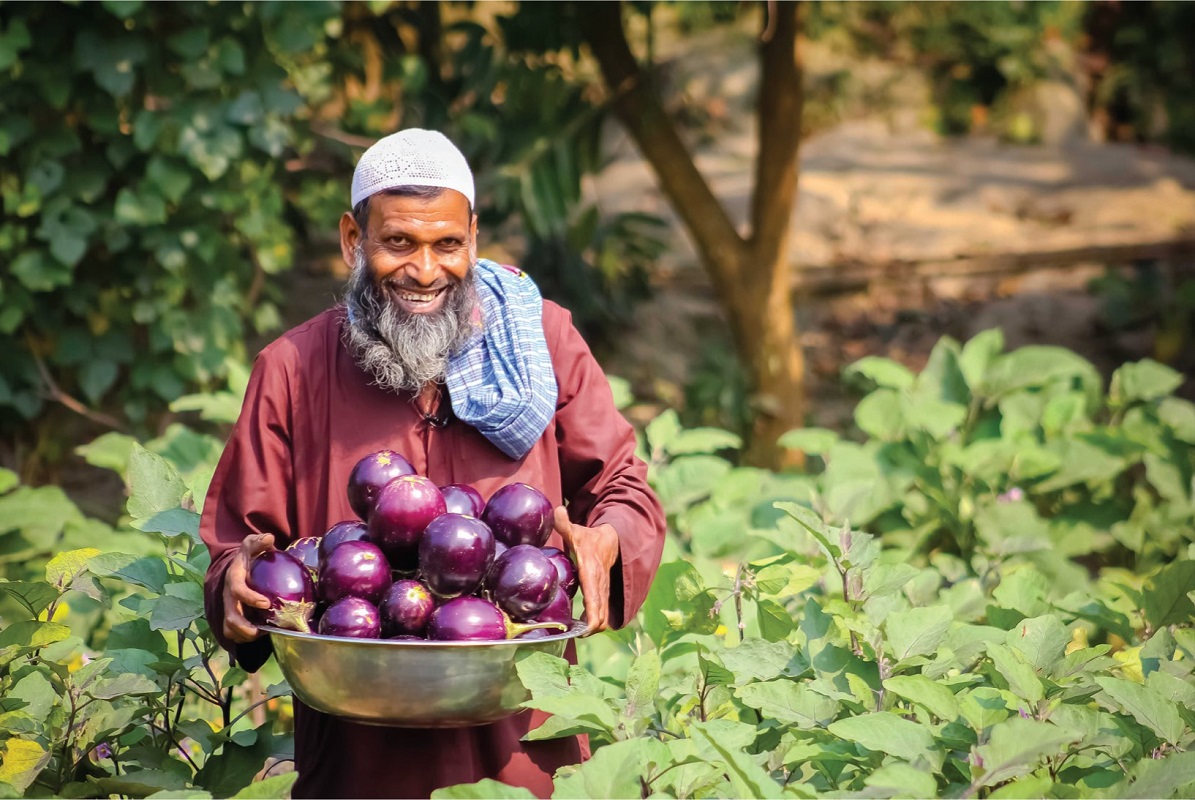
Entomologist Shares Impact of Bt Brinjal in Bangladesh
February 23, 2022| |
Cornell University entomologist, Dr. Anthony Shelton, released a personal account of using biotechnology, particularly Bt eggplant, in improving the lives of resource-poor farmers. The article is published in American Entomologist.
Dr. Shelton was one of the experts who worked on the Bt eggplant project. He told the story of Bt eggplant, starting from its development up to its adoption in Bangladesh, where it was approved for planting in 2014. He emphasized the remarkable rate of Bt eggplant adoption in Bangladesh where it was initially planted by 20 farmers in the 2013-2014 growing season. By 2020-2021 season, there were over 65,000 farmers who adopted Bt eggplant, also known as Bt brinjal in Bangladesh and India.
Several studies have shown the impact of Bt brinjal in Bangladesh. According to a study conducted by the Bangladesh Agricultural Research Institute, the farmers garnered a six-fold increase in net returns compared to planting non-Bt brinjal. They also had 61% pesticide cost savings. In another survey conducted by the International Food Policy and Research Institute, the results showed that Bt brinjal exhibited excellent control of eggplant fruit and shoot borer, 51% increase in yield, 128% growth in net revenues, 37.5% reduction in pesticide costs, 11.5% decrease in pesticide poisonings.
The improvement in the lives of resource-poor farmers and their families in Bangladesh indicates the significant impact of Bt brinjal in developing countries. In the Philippines, the developers are preparing the regulatory requirements for commercial approval of Bt eggplant. Indian farmers are still far from availing the benefits of the technology because of the current political challenges faced by Bt brinjal in their country.
Read the complete article in American Entomologist.
| |
You might also like:
- What Will Farmers Get from Planting Bt Eggplant?
- Philippines Approves Bt Eggplant for Direct Use as Food, Feed, or for Processing
- Bt Eggplant to Boost Marketable Yield by 192%, Reduce Insecticide Use by 48% in PH
Biotech Updates is a weekly newsletter of ISAAA, a not-for-profit organization. It is distributed for free to over 22,000 subscribers worldwide to inform them about the key developments in biosciences, especially in biotechnology. Your support will help us in our mission to feed the world with knowledge. You can help by donating as little as $10.
-
See more articles:
-
News from Around the World
- Entomologist Shares Impact of Bt Brinjal in Bangladesh
- Nebraska-led Project to Empower Youth on Agricultural and Scientific Innovations
- GE Cotton Could Help Improve Food Security
- Scientists Create CROPSR, A Tool to Accelerate Genetic Discoveries
- Researchers Develop Plants with Improved Oxylipin Production Using Transgenic Techniques
- Rothamsted Research Scientists Engineer Plant to Replace Fossil Fuels as Source of Key Industrial Compounds
-
Research Highlights
- Biosafety Evaluation Concludes GM Cotton Not Harmful to Rats
- Analysis of Root Systems Genes Helps Identify Candidate Genes for Water Stress Adaptation in Rice
-
Read the latest: - Biotech Updates (February 11, 2026)
- Gene Editing Supplement (January 28, 2026)
- Gene Drive Supplement (February 22, 2023)
-
Subscribe to BU: - Share
- Tweet

